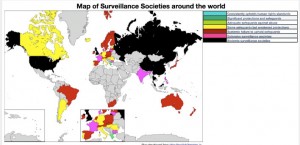Glenn Greenwald: Bradley Manning’s gift is a glimpse into America’s soul
Reality seems upside down in many ways, including the manner in which mainstream journalists have treated Wikileaks and Bradley Manning. Glenn Greenwald comments at The Guardian:
The repressive treatment of Bradley Manning is one of the disgraces of Obama's first term, and highlights many of the dynamics shaping his presidency. The president not only defended Manning's treatment but also, as commander-in-chief of the court martial judges, improperly decreed Manning's guilt when he asserted in an interview that he "broke the law". Worse, Manning is charged not only with disclosing classified information, but also the capital offence of "aiding the enemy", for which the death penalty can be imposed (military prosecutors are requesting "only" life in prison). The government's radical theory is that, although Manning had no intent to do so, the leaked information could have helped al-Qaida, a theory that essentially equates any disclosure of classified information – by any whistleblower, or a newspaper – with treason.

